On the afternoon of October 31, at the Ho Chi Minh National Academy of Politics, Professor, Dr. To Lam, General Secretary of the Central Executive Committee of the Communist Party of Vietnam, had a discussion on the topic "New era, the era of national rise" with students of the Training and updating course on knowledge and skills for cadres planning members of the 14th Central Executive Committee of the Party (3rd class).

Attending were comrade Nguyen Xuan Thang, Politburo member, Director of Ho Chi Minh National Academy of Politics , Chairman of the Central Theoretical Council, Permanent Deputy Head of the Steering Committee of the class.
During the 2 hours, General Secretary To Lam analyzed and clarified: some basic contents about the new era, the era of national rise; the basis for positioning the goal of bringing the country into the new era, the era of national rise. Strategic orientations to bring the country into the new era, the era of national rise. People's Newspaper respectfully introduce the content of the exchange.
The beginning of a new era is the 14th National Party Congress.
First of all, the General Secretary clarified some basic perceptions about the new era, the era of national growth.
1.1. Era: is a historical period marked by important characteristics or events that have a great influence on the development of society-culture-politics-nature. Era is often used to divide time in history according to major events or fundamental changes in political life or science, technology, environment. For example: Industrial Era, Information Era, Digital Era, Space Era. Previously, there was the Stone Age, Ancient Era, Medieval Era...
1.2. The era of self-improvement: The era of self-improvement implies creating a strong, decisive, resolute, positive, effortful, inner-strength, and confident movement to overcome challenges, surpass oneself, realize aspirations, reach goals, and achieve great achievements.
1.3. The new era, the era of the Vietnamese people's rise, is the era of development, the era of prosperity under the leadership and rule of the Communist Party, successfully building a socialist Vietnam, a rich people, a strong country, a democratic, fair, civilized society, on par with the world powers. All people have a prosperous and happy life, are supported to develop and enrich themselves; contribute more and more to the peace, stability, development of the world, the happiness of humanity and global civilization.
The destination of the rising era is a rich people, strong country, socialist society, on par with the world powers. Top priorities in the new era is to successfully implement strategic goals by 2030, Vietnam will become a developing country with modern industry and high average income; by 2045 it will become a developed socialist country with high income; strongly arouse national spirit, spirit of autonomy, self-confidence, self-reliance, national pride, aspiration for national development; closely combine national strength with the strength of the times.
The beginning of a new era is the 14th National Party Congress, from now on, all Vietnamese people, hundreds of millions of people as one, under the leadership of the Party, will unite, join forces, make the most of opportunities and advantages, push back risks and challenges, bring the country to comprehensive and strong development, breakthrough and take off.
The General Secretary believes that the basis for determining the goal of bringing the country into a new era, an era of national growth, is:
- The great achievements after 40 years of renovation under the leadership of the Party have helped Vietnam accumulate position and strength for breakthrough development in the next stage: From a poor, backward, low-level country, besieged and embargoed, Vietnam has become a developing country with average income, deeply and widely integrated into world politics, the global economy, human civilization, taking on many important international responsibilities, promoting an active role in many important multilateral organizations and forums. Independence, sovereignty, unity and territorial integrity are maintained; national and ethnic interests are guaranteed.
The size of the economy in 2023 will be 96 times larger than in 1986. Vietnam is among the 40 countries with the largest economies in the world and the top 20 economies in terms of trade and foreign investment attraction; has diplomatic relations with 193 countries that are members of the United Nations; builds partnerships, strategic cooperation, and comprehensive strategic partnerships with all major powers in the world and the region.
People's lives have improved significantly, the poverty rate has decreased sharply; the Millennium Development Goals have been achieved early. Political, economic, cultural, social, scientific-technological, national defense and security potential has been constantly enhanced; actively contributing to maintaining peace and stability in the region and the world.
- The world is in a period of epochal change. From now until 2030 is the most important period to establish a new world order. This is also a period of important strategic opportunity, the final stage of the Vietnamese revolution to achieve the 100-year strategic goal under the leadership of the Party, creating a solid premise to achieve the goal of 100 years of national founding.
The epochal change brings new opportunities and advantages, but also many challenges, in which the challenges are more prominent and new opportunities can also appear in the moment between sudden changes in the world situation. The 4th industrial revolution, especially artificial intelligence and digital technology, brings opportunities that developing and underdeveloped countries can grasp to get ahead and develop rapidly.
- The history of the Vietnamese revolution shows that, under the Party's ingenious and wise leadership, arousing the will of self-reliance, self-control, self-confidence, self-strengthening, national pride, mobilizing the strength of the entire people combined with the strength of the times, the Vietnamese revolutionary boat will achieve miracles (the miracle of a semi-feudal colonial democratic country being able to defeat two powerful colonial empires; the miracle of a country from being besieged and embargoed to successfully carrying out the renovation process with great achievements). Now is the time when the Party's will blends with the people's heart in the aspiration to build a prosperous and happy country, soon successfully build socialism, and stand shoulder to shoulder with the great powers of the five continents.
From the above issues, the General Secretary affirmed that it can be seen that this is the time to "converge" all advantages and strengths to bring the country into a new era, an era of national growth following the era of independence, freedom, building socialism and the era of innovation.
Strategic directions
After discussing and clarifying the basis for positioning the goal of bringing the country into a new era, the General Secretary presented strategic directions and suggested issues for students to study and apply in practice.
1. On improving the Party's leadership method
- During more than 94 years of leading the revolution, our Party has constantly researched, developed, supplemented, and perfected its leadership methods, and enhanced its leadership and governing capacity. This is the key factor ensuring that the Party is always clean and strong, steering the revolutionary boat through all rapids, achieving one victory after another.
- Besides the results, the innovation of the Party's leadership method still has many shortcomings and limitations :
(i) The situation of issuing many documents, some of which are general, scattered, overlapping, and slow to be supplemented, revised, or replaced.
(ii) Some major policies and orientations of the Party have not been institutionalized promptly and fully, or have been institutionalized but are not feasible.
(iii) The overall model of the political system is not yet complete; the functions, tasks, powers, and working relationships of organizations, individuals, and leaders are unclear; decentralization and delegation of power are not strong.
(iv) The organizational model of the Party and the political system still has shortcomings, making the boundary between leadership and management difficult to distinguish, easily leading to excuses, replacing or loosening the leadership role of the Party.
(v) Administrative reform, innovation in working style and manners within the Party are still slow; meetings are still frequent.
- The requirement to strongly innovate leadership methods, improve leadership capacity, governing capacity, ensure the Party is the great helmsman, leading our nation forward strongly is urgent, some strategic solutions are as follows:
(i) Strictly implement the Party's leadership and governing methods , absolutely do not allow excuses, replace or loosen the Party's leadership.
(ii) Focus on streamlining the apparatus and organizing Party agencies, truly becoming the intellectual core, the "general staff", and the vanguard leading state agencies. In particular, research and promote the consolidation of a number of advisory and support agencies of the Party; promptly and comprehensively assess the concurrent holding of positions of the Party and the political system to have appropriate decisions. Ensure that the Party's leadership tasks do not overlap with management tasks; distinguish and clearly define the specific tasks of leaders at all levels in different types of Party organizations, avoiding the situation of making excuses or duplication or formality.
(iii) Strongly innovate the promulgation, dissemination and implementation of Party resolutions; build grassroots party organizations and party members who are truly "cells" of the Party. Resolutions of Party committees and organizations at all levels must be concise, succinct, easy to understand, easy to remember, easy to absorb, easy to implement, accurately identifying the requirements, tasks, paths and methods of development of the country, the nation, each locality, each ministry and sector; must have vision, scientific nature, practicality, practicality and feasibility; create excitement, trust, expectation and motivation to urge the actions of cadres, Party members, economic sectors, enterprises and people to implement the Party's Resolutions.
Building strong grassroots Party cells with high combativeness and the capacity to put Party resolutions into practice; innovating and improving the quality of grassroots Party cell activities, ensuring effective and substantive Party cell activities.
(iv) Innovate inspection and supervision work; promote the application of information technology and digital transformation in Party activities. Issue regulations on decentralization of inspection and supervision authority associated with detection and strict handling of all acts of taking advantage of inspection and supervision for corruption and negativity.
2. On strengthening the Party spirit in building and perfecting the socialist rule of law state of the people, by the people, for the people
- After 2 years of implementing Resolution No. 27-NQ/TW on continuing to build and perfect the Socialist Rule of Law State of Vietnam in the new period, encouraging results have been achieved. However, the building and perfecting of the Socialist Rule of Law State of Vietnam still has many shortcomings and limitations:
(i) Some major policies and orientations of the Party have not been institutionalized promptly and fully, or have been institutionalized but their feasibility is not high;
(ii) The legal system still has contradictory and overlapping provisions that are not suitable for economic and social development and are slow to be supplemented, amended, or replaced.
(iii) Mechanisms, policies and laws have not created a truly favorable environment to promote innovation and attract resources from domestic and foreign investors as well as the people. Of the three biggest bottlenecks today, namely institutions, infrastructure and human resources, institutions are the “bottleneck” of “bottlenecks”, posing an urgent need to promote Party spirit in building a socialist rule-of-law state.
- Regarding viewpoint: Laws in the socialist rule of law state need to be continuously improved to institutionalize the Party's guidelines and policies, promote democracy, be for the people, recognize, respect, ensure and protect human rights and civil rights.
- About the solution, Strongly innovate legislative work, including:
(i) Transforming the thinking of law-making towards both ensuring the requirements of State management and encouraging creativity, liberating all productive forces, and opening up all resources for development. Management thinking is not rigid, resolutely abandoning the thinking of "if you can't manage, then ban".
(ii) The provisions of the law must be stable and have long-term value; the law only regulates framework issues and issues of principle; it does not need to be too long. Practical issues that fluctuate frequently will be assigned to the Government and localities to regulate to ensure flexibility in management. Absolutely do not administrativeize the activities of the National Assembly; legalize the provisions of Decrees and Circulars.
(iii) Innovate the process of building and organizing the implementation of laws. Closely follow the reality, stand on the ground of Vietnamese reality to build appropriate legal regulations; learn from experience while doing; do not be hasty, but also do not be perfectionist, so as not to lose opportunities; take people and businesses as the center and subject; regularly evaluate the effectiveness and quality of policies after promulgation to promptly adjust inadequacies and conflicts, minimize loss and waste of resources; proactively detect and quickly remove "bottlenecks" caused by legal regulations.
(iv) Promote decentralization and delegation of power with the motto "locality decides, locality acts, locality takes responsibility"; thoroughly reform administrative procedures, reduce compliance costs, and create the greatest convenience for people and businesses.
(v) Focus on controlling power in law-making, tightening discipline, promoting responsibility, especially the responsibility of leaders, resolutely fighting against negativity and "group interests".
(vi) Proactively, actively, and urgently build a legal corridor for new issues and new trends (especially issues related to the 4.0 revolution, artificial intelligence, digital transformation, green transformation, etc.) to create a legal framework to successfully implement the digital transformation revolution, creating a breakthrough for the country's development in the following years.
3. On streamlining the organization for effective and efficient operations
- This task is very urgent:
(i) Currently, 70% of the budget is used to support the apparatus, while the work of arranging and perfecting the organization of the State administrative apparatus to be streamlined, operate effectively and efficiently, reduce focal points and intermediate levels is still inadequate, some parts are still cumbersome, overlapping between the legislative and executive branches, not really meeting the requirements of improving the effectiveness and efficiency of management. Some ministries and branches still take on local tasks, leading to the existence of a mechanism of asking and giving, which easily gives rise to negativity and corruption. The work of streamlining the payroll associated with job positions, improving the quality and restructuring the team of civil servants and public employees is still lacking in thoroughness.
(ii) This is one of the reasons leading to hindering development, increasing administrative procedures, wasting time and effort of businesses and citizens, and missing development opportunities for the country.
- Strategic policy :
(i) Continue to focus on building and streamlining the organizational apparatus of the Party, the National Assembly, the Government, the Fatherland Front, and socio-political organizations to operate effectively and efficiently; streamline the apparatus and organize Party agencies to truly be the intellectual core, the "general staff", and the vanguard leading state agencies.
(ii) Cut down on unnecessary intermediaries, reorganize the organization in a multi-sectoral and multi-disciplinary manner. Promote decentralization and delegation of power in the direction of "local decision, local action, local responsibility" associated with strengthening inspection and supervision, clearly defining responsibilities between the Central and local levels, between local authorities, between managers and workers. Complete the inspection and supervision mechanism, ensure unity in state management and promote proactiveness, creativity, and enhance the autonomy and self-reliance of localities.
(iii) Preliminary review of the implementation of Resolution No. 18 of the 6th Conference of the 12th Central Executive Committee "Some issues on continuing to innovate and reorganize the political system to be streamlined and operate effectively and efficiently" throughout the political system presented to the 11th Central Conference, 13th tenure; as a basis for new policies to strongly innovate the work of organizing cadres according to the direction agreed upon by the 10th Central Committee.
4. Digital transformation
- Digital transformation is not simply the application of digital technology to socio-economic activities, but also the process of establishing a new, advanced and modern production method - "digital production method" , in which the characteristic of the productive forces is the harmonious combination of humans and artificial intelligence; data becomes a resource, an important means of production; at the same time, production relations also have profound changes, especially in the form of ownership and distribution of digital means of production.
- Inappropriate production relations are hindering the development of new productive forces:
(i) Mechanisms, policies and laws are not really consistent, still overlap, and do not create a truly favorable environment to attract resources, especially resources from the people.
(ii) Administrative reform, digital transformation, e-government and digital government development are still limited. There are still cumbersome and outdated administrative procedures that require many stages and doors, taking a lot of time and effort from people and businesses, easily giving rise to petty corruption, and hindering development. The connection and sharing of data between information systems of ministries, branches, localities and the national database are not smooth; many online public services are of low quality, with low user rates; the organization and operation of "one-stop" departments at all levels in many places is not effective.
- Implement digital transformation revolution with strong and comprehensive reforms to adjust production relations, create new momentum for development, take full advantage of opportunities and advantages brought by the Fourth Industrial Revolution, and bring the country to a leapfrog and develop rapidly. The Politburo will soon study and issue a Resolution on national digital transformation to lead the drastic implementation throughout the Party and the entire political system.
- Some main solutions:
(i) Focus on building a legal corridor for digital development, creating a foundation for Vietnam to seize opportunities from the Fourth Industrial Revolution. Regularly review and promptly amend inappropriate regulations, creating a corridor for new economic models such as sharing economy, circular economy, artificial intelligence... to ensure that the legal framework does not become a barrier to development; at the same time, ensure national security, protect the rights and legitimate interests of people and businesses.
(ii) Have a breakthrough mechanism to attract domestic and foreign talents; build a strategy to develop human resources with knowledge, skills and innovative thinking, meeting the requirements of the digital economy and the Fourth Industrial Revolution.
(iii) Promote the application of information technology, build a digital platform to connect and share data between agencies and organizations. The goal is that by 2030, Vietnam will be among the top 50 countries in the world and ranked 3rd in the world. ASEAN on e-government, digital economy.
(iv) Promote digital transformation in conjunction with ensuring security and safety. Focus on building a digital society, comprehensively digitizing state management activities, and providing high-level online public services. Synchronously connect national databases on population, land, and enterprises, creating a foundation for streamlining the apparatus and substantially reforming administrative procedures. Develop the digital economy, build digital citizens.
5. Anti-waste
- Reality shows, “Waste, although not pocketing public money, is still very harmful to the people and the Government. Sometimes it is more harmful than corruption” [1] . However, waste is now quite common, in many different forms, and has caused many serious consequences for development (causing a decline in human resources, financial resources, reducing production efficiency, increasing cost burden, causing resource depletion, increasing the gap between rich and poor; causing a decline in people's trust in the Party and State, creating invisible barriers in socio-economic development, missing out on development opportunities for the country).
- Some forms of waste are emerging fiercely today, which are :
(i) The quality of law making and completion has not met practical requirements, leading to difficulties and obstacles in implementation, causing loss and waste of resources.
(ii) Waste of time and effort of businesses and individuals when administrative procedures are cumbersome and online public services are not convenient and smooth.
(iii) Wasted development opportunities for localities and the country due to ineffective operations of the state apparatus in some places and at some times; a number of officials lack capacity, avoid or push away work, and are afraid of responsibility; due to low quality and labor productivity.
(iv) Waste of natural resources; waste of public assets due to ineffective management and use, including disbursement of public investment capital; equitization and divestment of state-owned enterprises; rearrangement and handling of state-owned houses and land; implementation of national programs and targets, and credit packages to support social security development are mostly very slow.
(v) Waste in production, business and consumption activities of the People occurs in many forms.
(vi) Waste is caused by the system of standards, norms, and regimes, some of which are not suitable for reality but are slow to be revised and supplemented. Meanwhile, waste handling has not been promoted, often associated with corruption handling as a consequence; there has not been a widespread emulation movement on practicing thrift and fighting waste as well as strong public opinion to criticize and condemn wasteful behaviors; the building of a culture of thrift and non-waste in society has not received due attention.
- The strategic solution for the coming years is:
(i) Strengthening the prevention and fight against waste is equivalent to preventing and fighting against corruption and negativity . From issuing Party regulations to identifying national strategies, legal regulations and implementing them throughout the Party, people and army; strictly handling individuals and groups whose actions and behaviors cause loss and waste of public assets in the spirit of "handling one case to alert the whole region and the whole field".
(ii) Review and supplement regulations on management mechanisms and economic-technical norms that are no longer suitable for the country's development practices. Complete regulations on handling wasteful behavior; regulations on management and use of public assets; institutions in the application of information technology, digital transformation, creating synchronization in transformation to minimize waste.
(iii) Resolutely resolve the long-standing problems of important national projects, key projects, low-efficiency projects, causing great loss and waste; weak commercial banks. Quickly complete equitization, improve the operational efficiency of state-owned enterprises. (iv) Build a culture of preventing and combating waste; make the practice of thrift and combating waste "voluntary", "self-conscious", "daily food, drink, clothing".
6. Staff
- Cadres and cadre work are “very important” issues, “deciding everything”, “cadres are the root of all work”, and are the decisive factor for the success or failure of the revolution. Building a cadre team with enough capacity to lead the country into a new era, an era of national growth, is an urgent issue.
- The qualities and requirements for cadres in the new revolutionary stage are:
(i) Have strong political will, pure moral qualities, dare to think, dare to do, dare to take responsibility, dare to innovate, dare to make breakthroughs for the common good; wholeheartedly serve the Fatherland and the people, always put the interests of the nation, the people, and the interests of the people above all else.
(ii) Having bravery, high determination, ready to commit and sacrifice personal interests. Dare to take the lead, innovate, eliminate the old, the backward; open the bottlenecks, solve problems and congestion in practice, bring high efficiency in performing duties and tasks; solving outstanding, prolonged or breakthrough errors for new issues that have not yet been overlapping, uniform and difficult to implement.
(iii) Having specific capacity, organizing the implementation, bringing the Party's strategic policy into practice of each ministry, department, branch and local (transforming numbers, transforming green, developing strategic infrastructure, thoroughly reforming administrative procedures ...).
- Solution to build a contingent of cadres in the new period:
(i) Strongly renovate the recruitment, training, promotion, appointment, rotation, mobilization and assessment of cadres in the direction of essence, because of finding people, on the basis of specific products measured.
(ii) Increase self -training and self -fostering, especially for the requirements of digital conversion.
(iii) Develop a mechanism to encourage and protect officials with innovation, dare to think, dare to do, dare to break through, dare to take responsibility for the common benefit on the basis of clearly defining people who dare to think, dare to do, dare to innovate creatively for the benefit of the adventure, reckless, unrealistic, unrealistic; Protects for risks of risk, errors early, as soon as planned, not to discourage.
(iv) Screening, removed from the position of work for those who do not have the qualities, competence and prestige.
(v) Focusing on training, retraining and challenging for comrades who are personnel planning to participate in the party committee, the Standing Committee of the Party committees at all levels, ensuring the selection of the Party Committee, especially the leader with the leadership capacity, high combat power, dare to think, dare to take responsibility, dare to innovate creativity for the common cause of the Party, the Party's leadership, and the Party's leadership, the Party's leadership, and the Party's leaders
7. Economic
- The overall Vietnamese economy has continuous growth since the implementation of the Platform 1991, often in the group of countries with high growth rate in the region and around the world, bringing Vietnam from low -income countries to a middle -income country.
- Although the growth rate is high, the risk of economic lagging is still existing, the risk of Vietnamese economic falls into the average income trap and difficult to approach developing countries, showing over 5 points:
(i) Vietnam's labor productivity growth rate gradually decreases, lower than many countries in the region (the period 2021-2025 is estimated at 4.8%, lower than the average of 3 years 2016-2018 (6.1%), not reaching the set goals (6.5%), while the same starting point with Vietnam, China in the early 1990s increased continuously each year reached 9%.
(ii) Productivity of integrated factors -important factors in the quality of growth also tends to decrease (the period of 2015-2019 reached 2.77%, leading the ASEAN region, in 2022 was -1.36%, in 2023 was -2%), showing the efficiency of the economy tended to decrease.
(iii) Vietnam's growth from 2021 to now mainly depends on export, of which FDI blocks account for over 70% (equivalent to 60% of GDP); These enterprises imported over 80% of components and equipment, using only simple production materials of Vietnam such as labor, land, basic raw materials, not helping Vietnam to build supporting industries and domestic enterprises with high competitiveness in the global value chain (Vietnamese enterprises participating in supply chains are just simple products). When the golden population period ended (about 2027-2037), the labor price increased, the competitive advantage was no longer available, the FDI moved to another country or decreased, which would seriously affect the economy of Vietnam.
(iv) The situation of many cadres and civil servants is afraid of responsibility, pushing, avoiding work handling, fear of innovation, not daring to think, dare to do, affect the quality of public performance, negative impact on socio-economic development.
(v) The resources for economic development have not been effective (Human resources are limited when labor productivity, the motivation of the state management officials decline; material resources are still wasted, financial resources have not been cleared): Waste in land use (while building a national database on slow land), minerals (mainly exploited and processed raw); Inadequate in transport infrastructure development (Planning for development of airport infrastructure, spreading seaports, fragmented investment in many localities with geographical locations close to each other, no difference) ; imbalance on energy infrastructure; Financial and monetary markets are unsustainable when large capital is frozen into real estate.
- The cause of the above situation, due to:
(i) Points of institutions and limitations in law enforcement. Fear of fear, fear of responsibility, do not dare to do, avoid responsibility, and push work to superior management agencies or to other ministries and branches.
(ii) Convert economic models from width to depth. Public investment is slow, the efficiency of capital use is not high, still spread, wasteful, has not promoted the role of leading and effectively activating non -state resources. Restructuring credit institutions, handling weak credit institutions slowly; The situation of "cross -ownership", credit loans for "internal" and "backyard" businesses are still complicated and have no thorough solutions. Identify strategic and high -value countries that have not been paid attention.
(iii) Infrastructure system and urban development lacking connectivity; Building slow number infrastructure.
(iv) The private economy has not become an important driving force of the economy, has not taken advantage of foreign investment resources.
(v) Application and development of science and technology have not brought clear results; The quality of human resources is still limited, lack of high -qualified labor to meet the development needs of key economic sectors, high technology, serving digital development.
(vi) external factors have a negative impact, increasing the risk of economic lagging.
- Some solutions, strategic orientation of economic development, repelling the risk of lagging, average income trap:
(i) stronger breakthroughs about development institutions, removal of bottlenecks, barriers, people and businesses as a center, mobilize and clear all internal and external resources, resources in the people, develop science and technology synchronously and smoothly, all for the country's economic and social development and the development of the material and spiritual life of the people; Synchronous and breakthrough in building socio -economic infrastructure is the highest priority.
(ii) Focus on building a socialist model of Vietnam, the focus is to build socialist people, create the foundation of building socialist society that the Party's platform has determined (rich people, strong, democratic, fair, civilized, managed by the people, the Communist Party led).
(iii) Focus on developing new production forces (combining high quality human resources with new production materials, strategic infrastructure on traffic, digital conversion, green conversion) associated with perfecting production relations.
(iv) initiating and implementing the revolution of digital conversion. Promote strategic technology, digital conversion, green conversion, science and technology, innovation innovation as the main motivation for development.
---------------------
[1] Ho Chi Minh: Full episode, ibid, T.7, p.357
Source



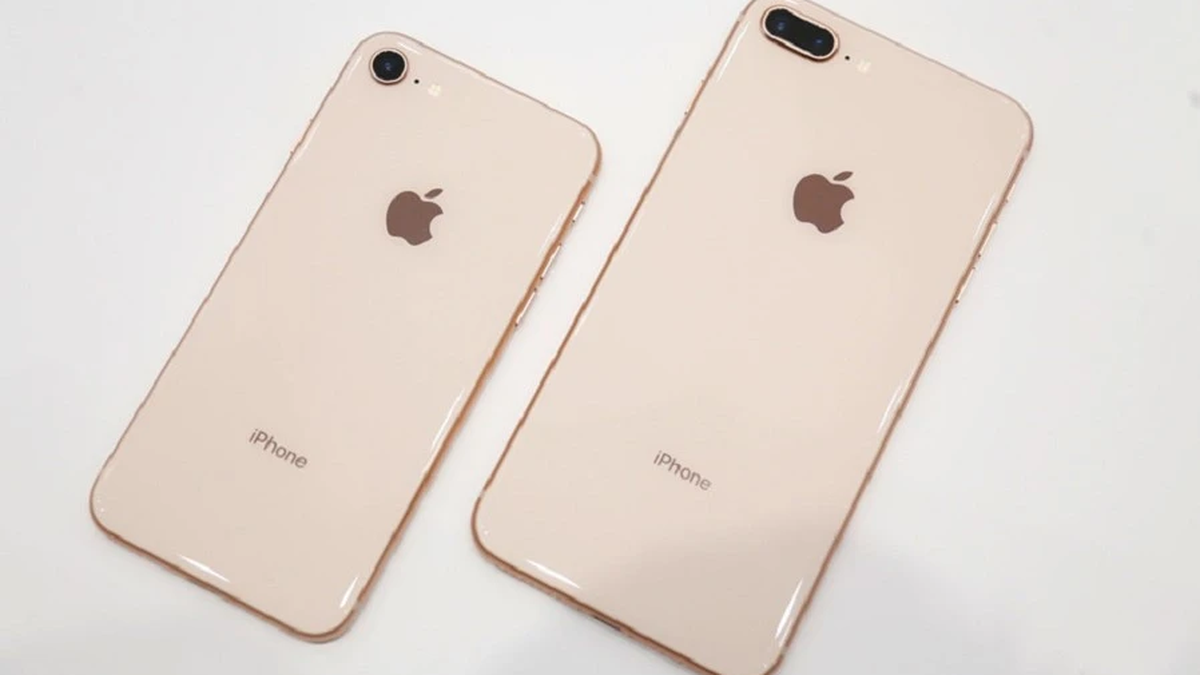
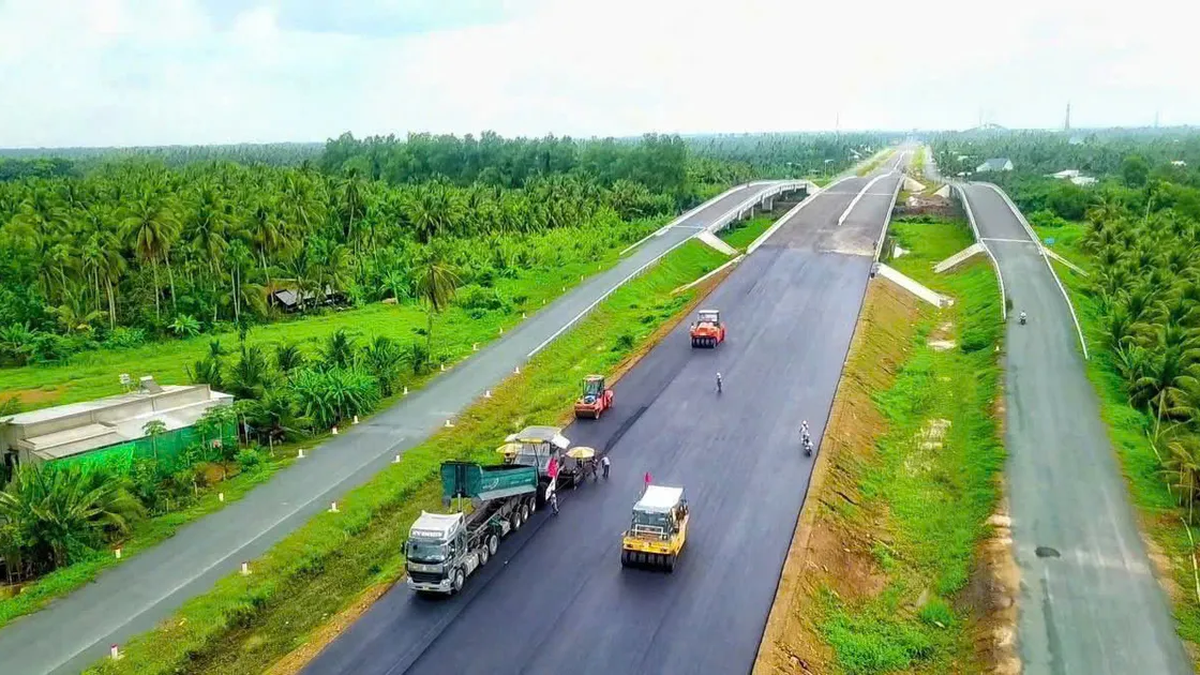
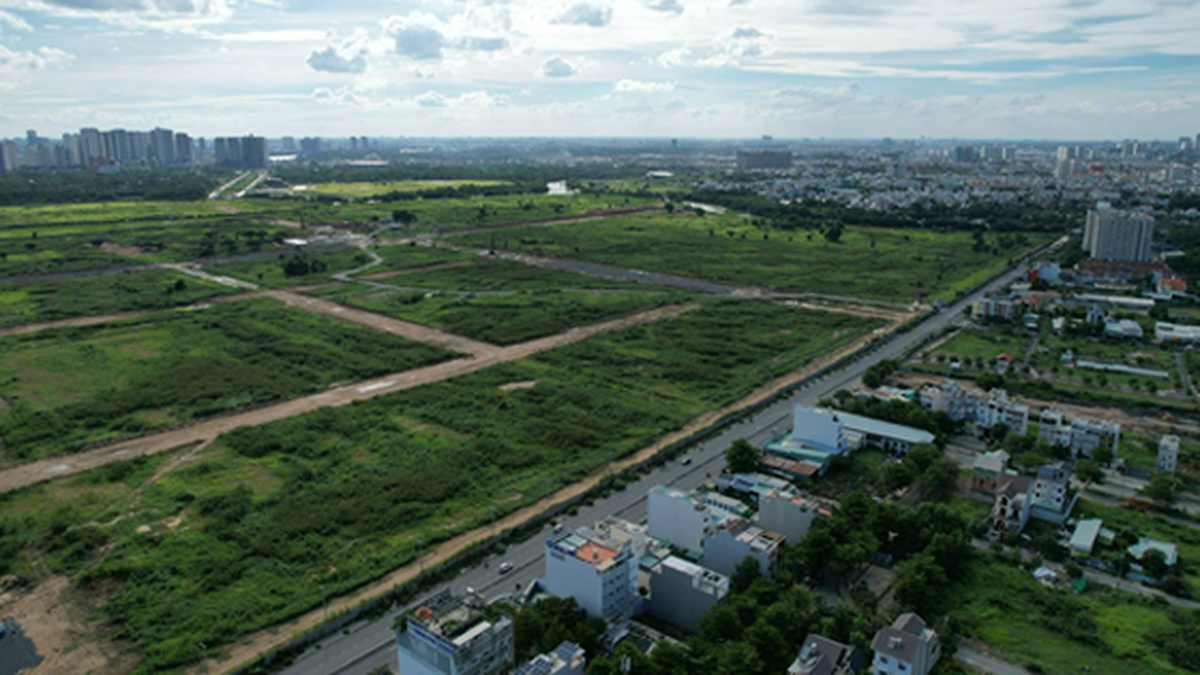

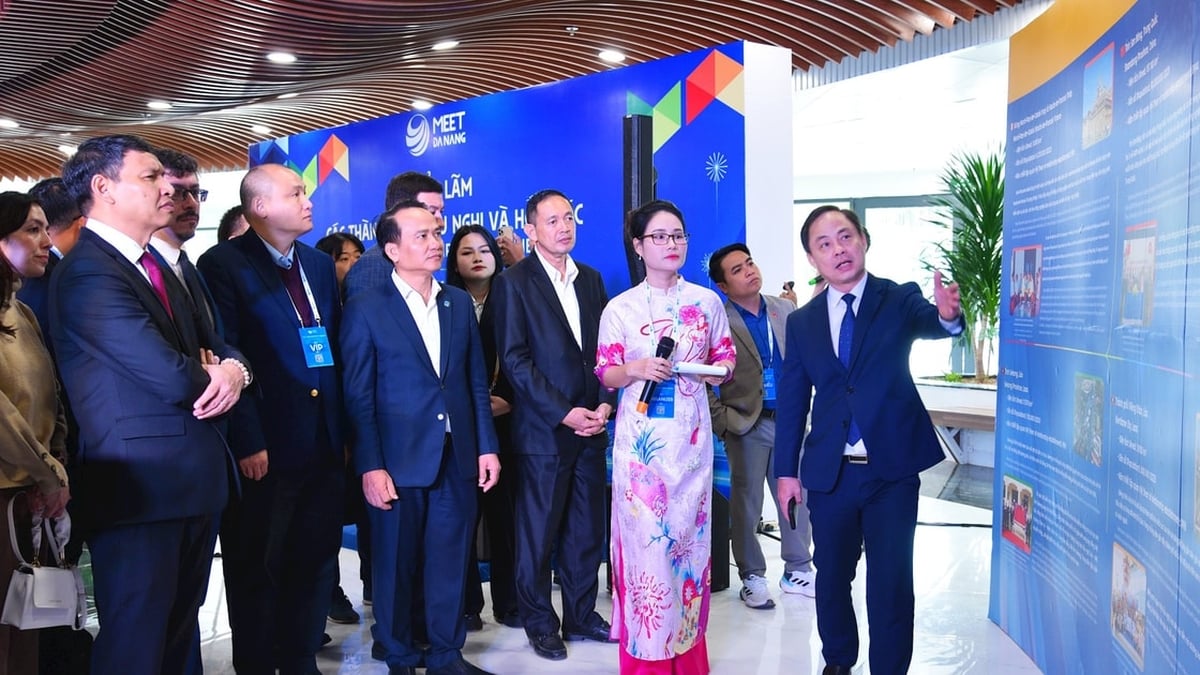
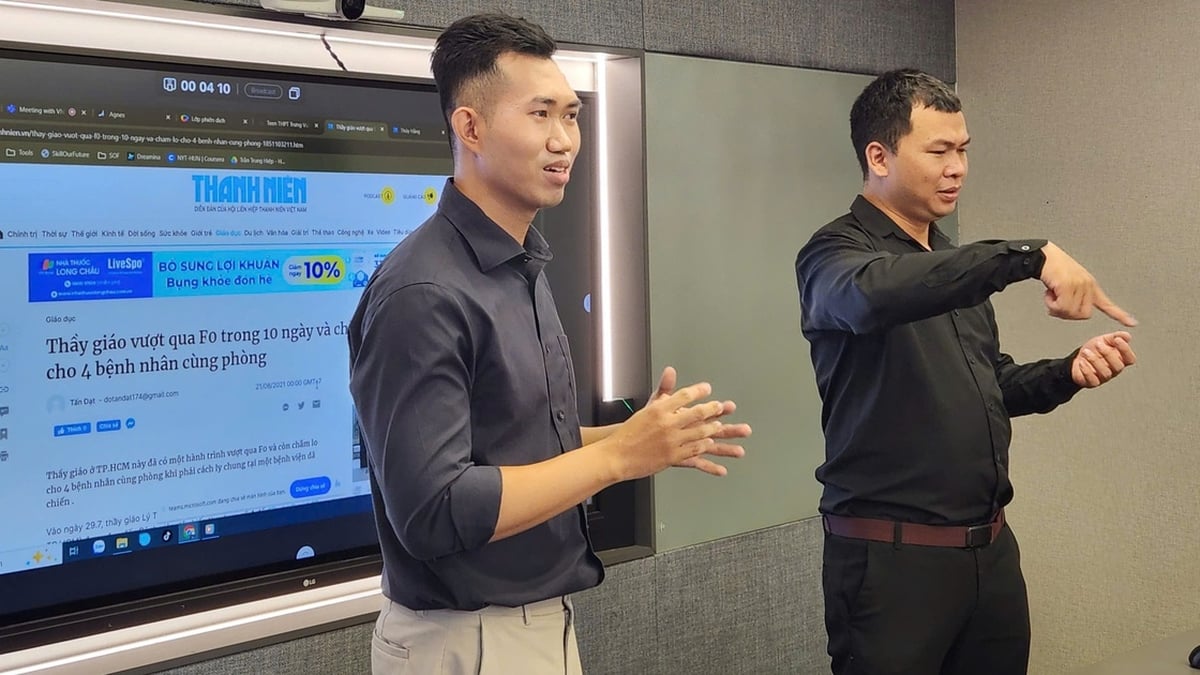

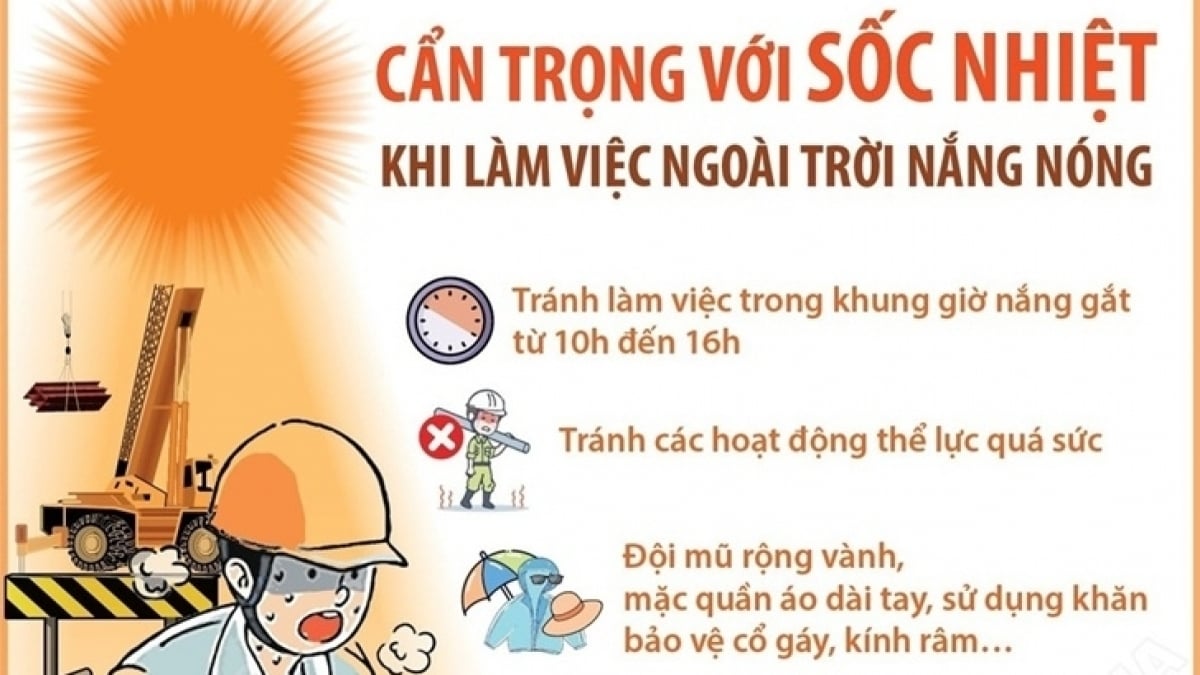












































![[Maritime News] Two Evergreen ships in a row: More than 50 containers fell into the sea](https://vphoto.vietnam.vn/thumb/402x226/vietnam/resource/IMAGE/2025/8/4/7c4aab5ced9d4b0e893092ffc2be8327)



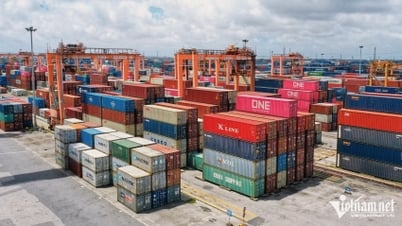
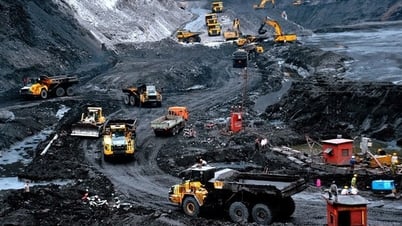





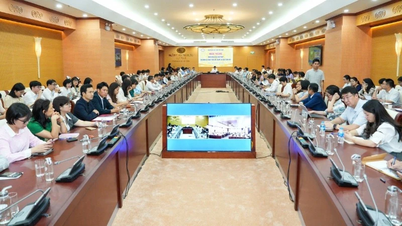

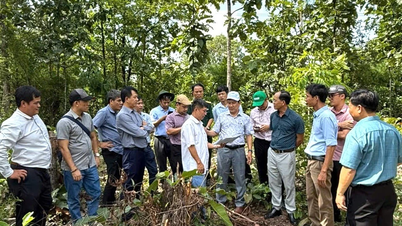

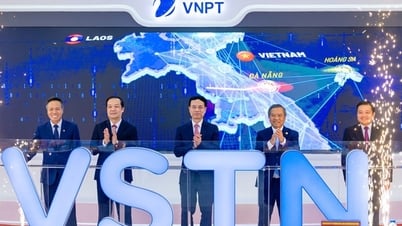

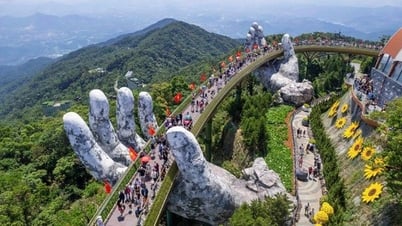

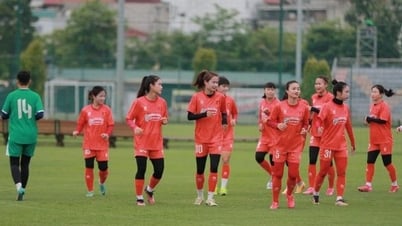
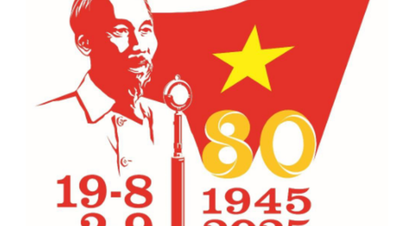
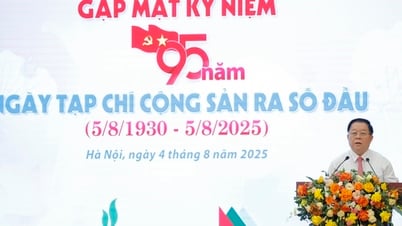
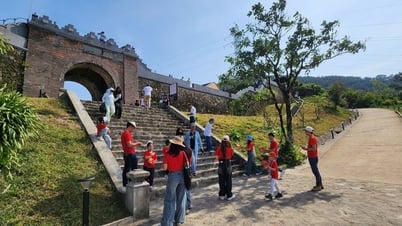


















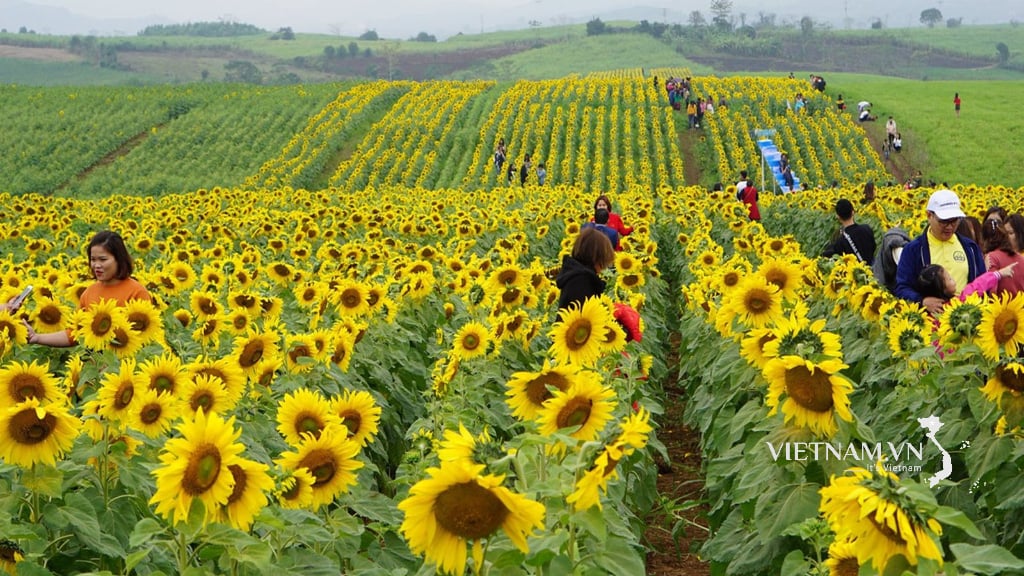


Comment (0)